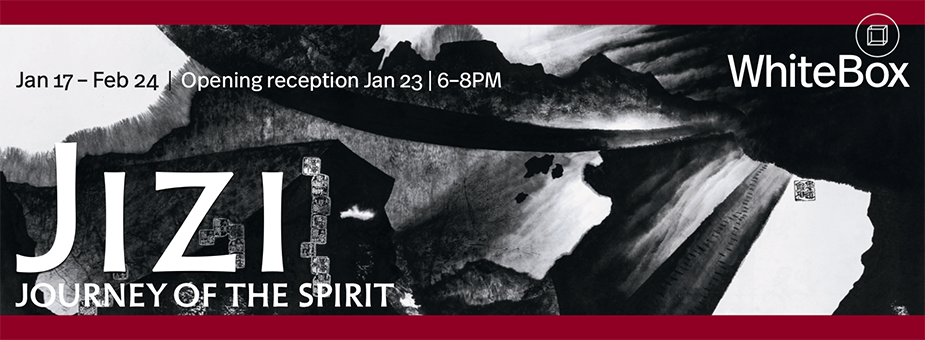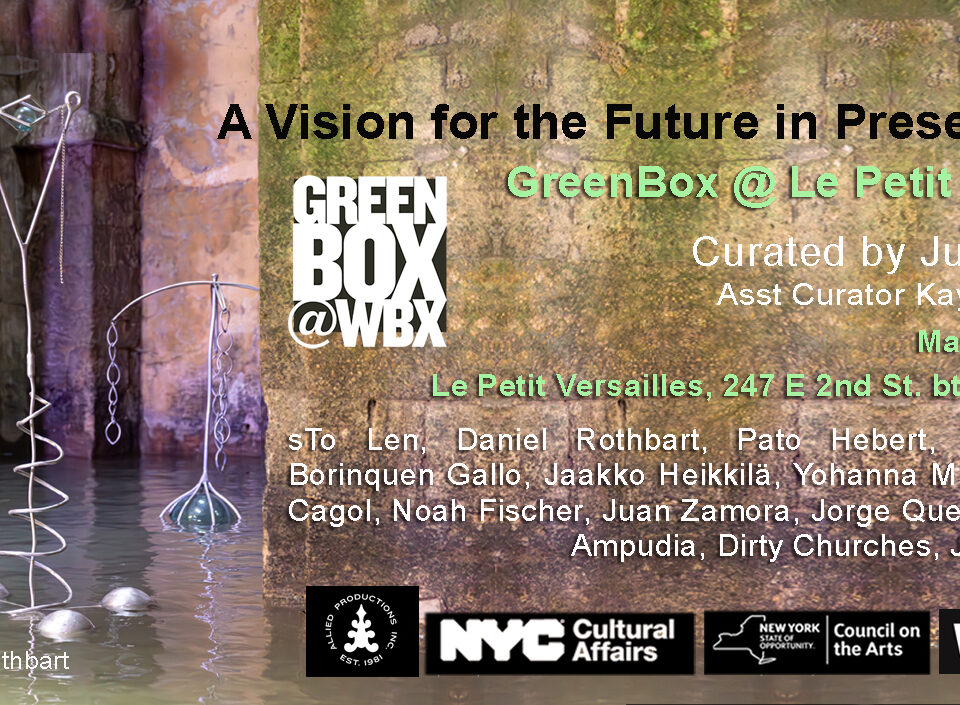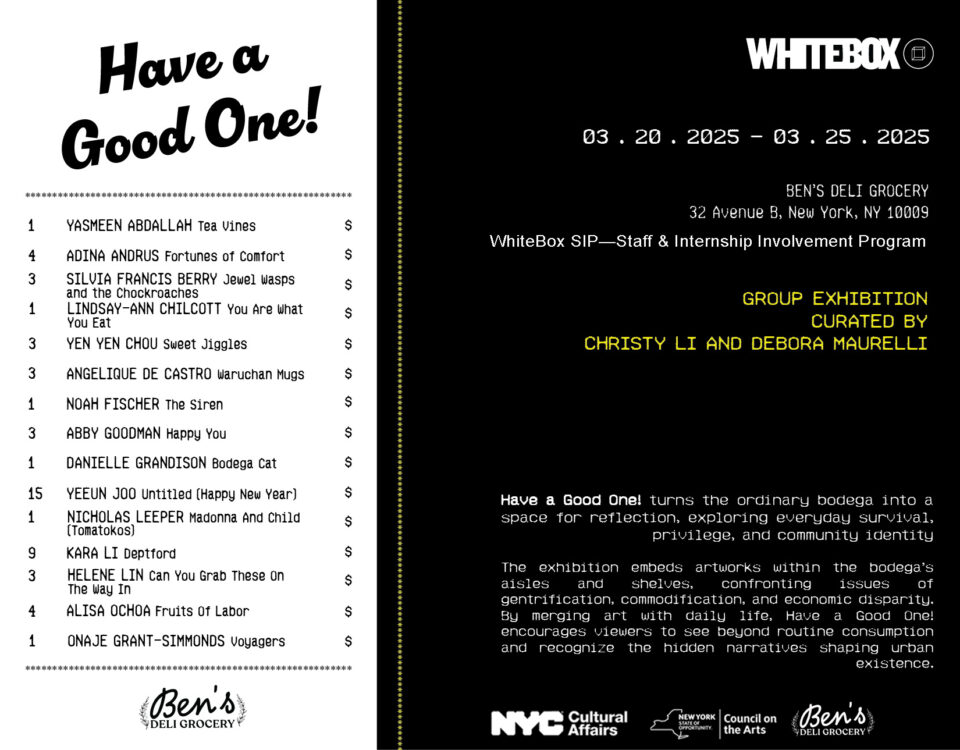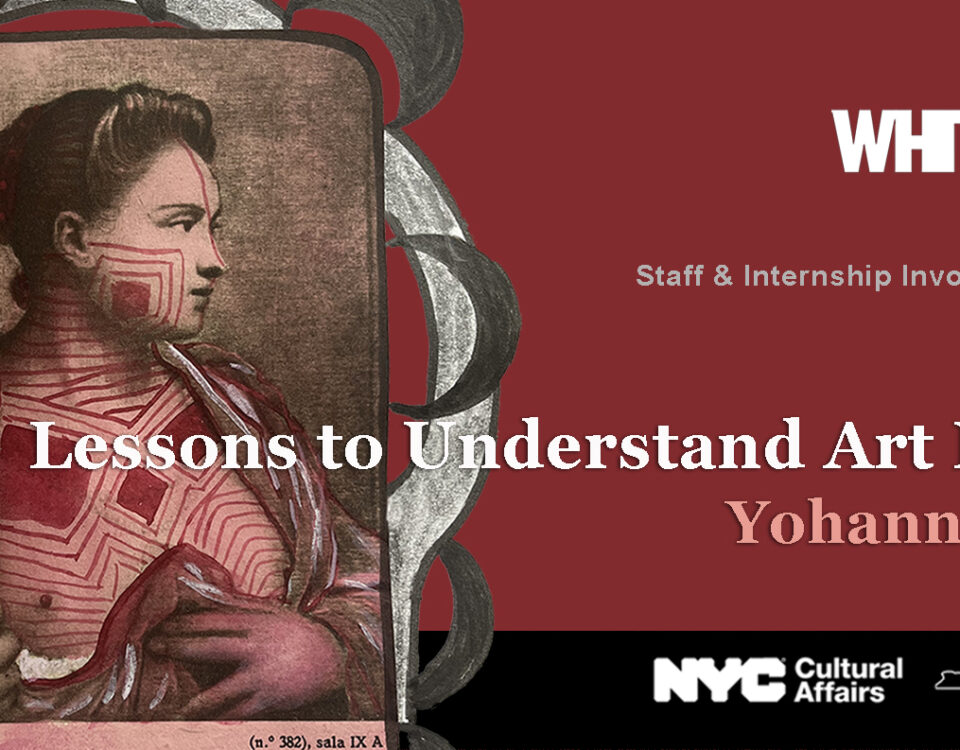Ritual Resist
November 1, 2017EXODUS I: A Colossal World: Japanese Artists and New York, 1950S – Present
February 5, 2018January 17 – February 24, 2018
January 23, 6 – 8PM | Opening reception
Sunday, January 28, 4 – 6PM | Sunday Salon with Dr. Wang Chunchen
Curated by
Thomas Rose and Dr. Chunchen Wang
Dr. Lyndel King, Director, Weisman Museum of Art (WAM), University of Minnesota
Diane Mullin, Curator of Special Projects, WAM
Organized for WhiteBox by Juan Puntes, Founder and Artistic Director and Kyoko Sato
In the last quarter of the twentieth century, many Chinese scholars, critics, and artists decried traditional Chinese painting (Zhongguohua) as out of step with an increasingly global culture. Over an almost half-century career that spanned a dynamic period of Chinese history the painter Jizi (1942–2015) countered that assertion, arguing that painting could indeed be traditionally and authentically Chinese while also addressing themes of universal significance.
Jizi’s work confronted the legacy of the Revolution’s antipathy to religion and traditional Chinese life and attitudes. Deeply interested in the spirit, the artist’s work contains a strong metaphysical strain and sheds light on the complex, and at times contradictory, impulses at work in contemporary Chinese art and culture.
Jizi was by and large self-taught, synthesizing the techniques and philosophy of traditional Chinese ink painting with individualistic expression culled from early modernist artists in the West. In turn, New York-based Abstract Expressionists such as Kline, Motherwell, and Dzubas drew influence from traditional Chinese ink painting. These overlapping strands can claim particular resonance for New York audiences.
“Jizi: Journey of the Spirit,” a memorial retrospective curated in association with the artist’s son, Chunchen Wang, includes a selection of Jizi’s large-scale ink paintings and a monumentally-sized, rarely seen, scroll. The artworks in “Jizi: Journey of the Spirit” reveal the artist’s decades-long search for a synthesis of styles, cultures, and ideas that honor tradition, reinforce the ideal of a universal oneness of all things, and embrace personal expression.
Image: Jizi, The Extension of Time No. 2, 2013, ink on paper. 192 x 180.5 cm.
Link to video from panel discussion “Making the Spirit Explicit”
Moderated by Alexandra Munroe with panelists Dr. Wang Chunchen, Eleanor Heartney, Eric Shiner, Dr. Mary Wiseman, and Richard Vine.
January 25, 2018
––
Jizi: Journey of the Spirit is part of a three-year grant to the University of Minnesota, awarded by the Henry Luce Foundation, to lead a multi-institutional exploration of transitions in Chinese art and culture. The project consortium includes the University of Minnesota, Carleton College, St. Olaf College, University of St. Thomas, Macalester College, College of St. Bendict/St. John’s University, and the Minneapolis Institute of Art. The partnership tasked itself with solidifying and expanding connections and collaborations in Chinese arts across the field of experts in Minnesota and partners in China. The consortium has accomplished this by organizing collaborative activities around the residency of Chinese artists and scholars in the Twin Cities and Minnesota artists and scholars in China. The exhibition at WAM is among the cluster of activities around the residencies of Wang Chunchen, head of the Department of Curatorial Research of CAFA Art Museum at the Central Academy of Fine Arts China, and U.S.- and China-based scholar David Brubaker.
This exhibition was first organized for the Weisman Art Museum (WAM), University of Minnesota, October 7 – December 31, 2017. Its presentation at WhiteBox is made possible through the generous support of Wang Jie, Li Wei, and Jia Tingfeng.
A public program accompanying the exhibition at WhiteBox, with curator Dr. Wang Chunchen and special guests, will extend this consortium effort to New York City thanks to support from the Henry Luce Foundation.
Additional support for the WAM exhibition provided by the Department of Religious and Spiritual Studies, University of Minnesota; The China Center and Confucius Institute of the University of Minnesota; The Chinese Heritage Foundation of Minnesota; Al Sedgwick; and Kaimay and Joseph Terry.
Special thanks to WAM staff Annette Van Aken, Registrar; Christopher Williams, Senior
Preparator and Exhibition Designer; and Jamee Yung, Director of Education. We would also like to acknowledge the many contributors to this effort, including: Guangdong Art Museum; Suzhou JInjinhu Art Museum; Beijing Minsheng Modern Art Museum; Wuhan Art Museum; Hunan Art Publishing House; Guangxi Normal University Press; CAFA Art Museum; China Central Academy of Fine Arts; Springer-Verlag; Alexandra Munroe, Fan Di’an; Zhang Zikang; Su Xinping; Zhou Xujun; Weng Yunpeng; Wu Hongliang; Yu Yang; Liu Wenjiong; Li Gongming; Jia Fangzhou; He JInwei; Pi Daojian; Gao Congyi; Sun Yongzeng; Wu Shaoning; Wang Xinyou; David Brubaker; Curtis Carter; David Carrier; Mary Wiseman; Paul Gladston; John Rajchman; Alexandra Munroe; Melissa Chiu; Katie Hill; Britta Erickson; Shen Kuiyi; Dodd Philip; Angela Nevill; Michael Goedhuis; Emily de Wolfe; and Peter Wayne Lewis.
WhiteBox programs are supported, in part, by public funds from the New York City Department of Cultural Affairs in partnership with the City Council.





